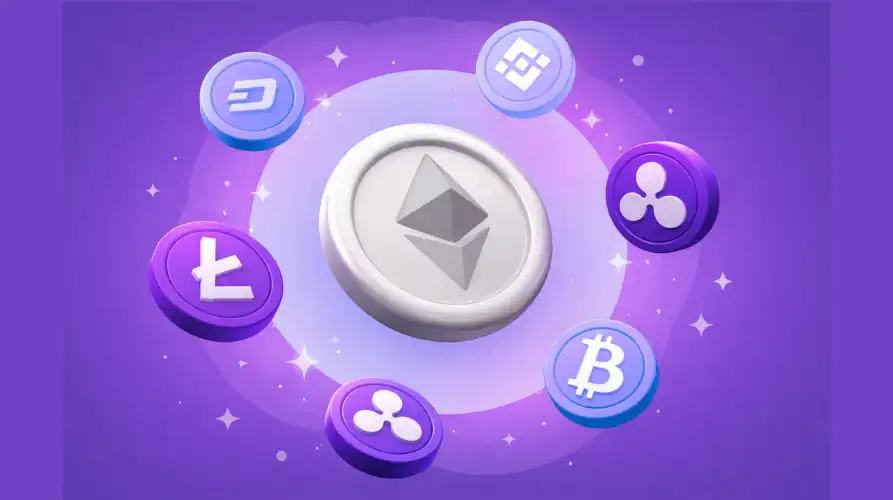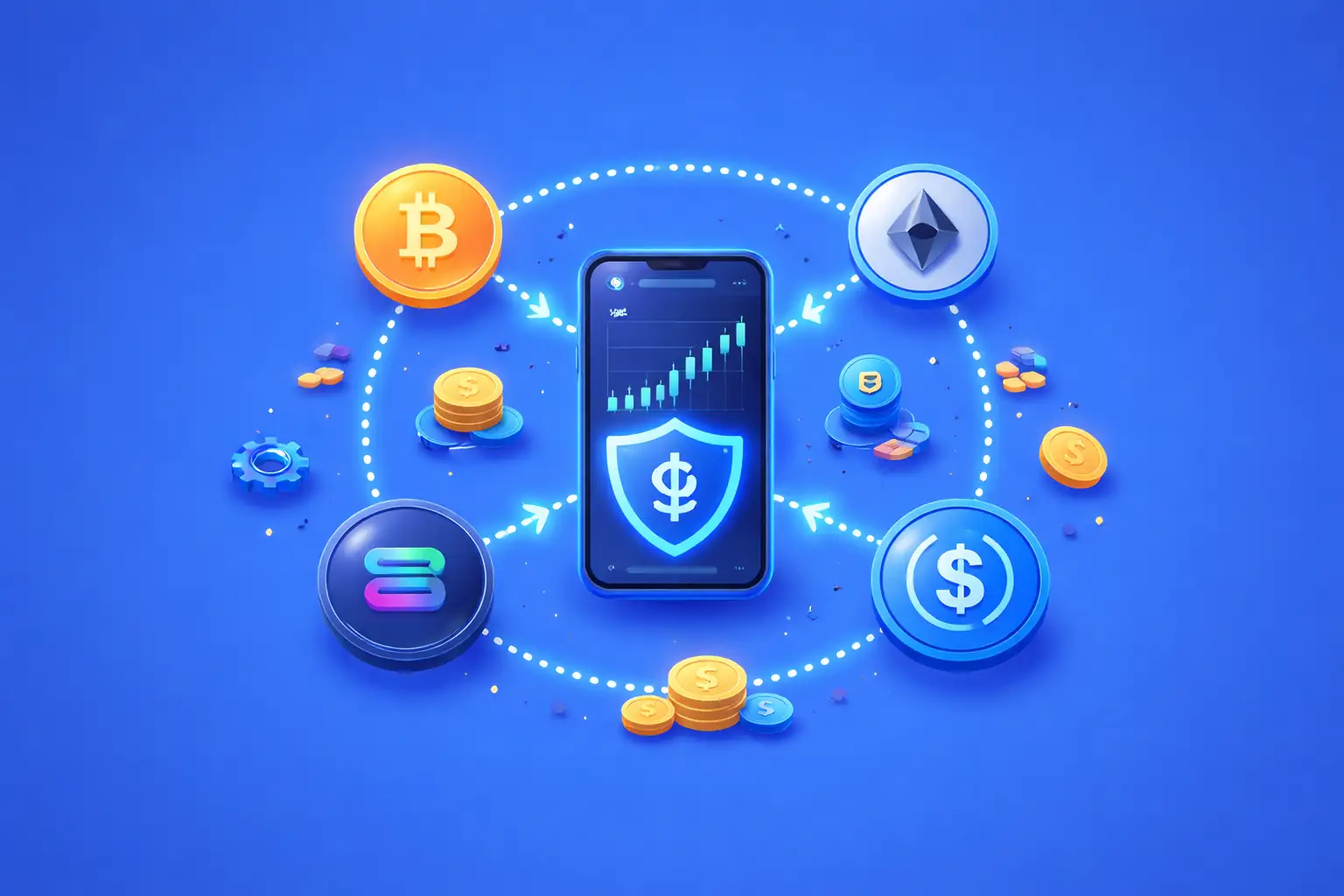Key Takeaways
- Bitcoin soft forks implement network upgrades without splitting the blockchain or requiring all participants to update their software simultaneously.
- Backward compatibility ensures that non upgraded nodes continue to validate transactions and blocks according to the original consensus rules.
- Miner Activated Soft Forks and User Activated Soft Forks represent two distinct governance approaches for implementing protocol changes on the Bitcoin network.
- Segregated Witness remains the most significant soft fork in Bitcoin history, addressing transaction malleability while increasing effective block capacity.
- Bitcoin Improvement Proposals serve as the formal mechanism through which developers propose, discuss, and document soft fork specifications before implementation.
- Soft forks have enabled critical security enhancements including stricter signature validation rules and improved script execution parameters.
- The economic impact of successful soft forks typically includes increased network utility, enhanced security perception, and improved transaction efficiency.
- Future soft fork proposals including Schnorr signatures and Taproot aim to enhance privacy, scalability, and smart contract functionality on Bitcoin.
- Community governance through signaling mechanisms ensures broad consensus before soft fork activation reduces risks of chain splits or network disruption.
- Understanding soft fork mechanics is crucial for businesses and investors evaluating Bitcoin transaction fees and long term network viability.
Introduction to Bitcoin Soft Forks in Blockchain
The Bitcoin network operates as a decentralized system where thousands of nodes worldwide must agree on the validity of transactions and blocks. When developers want to introduce new features or fix existing issues, they face a fundamental challenge: how to upgrade a system with no central authority? Soft forks provide an elegant solution to this problem by implementing changes that remain compatible with older versions of the software. This approach has enabled Bitcoin to evolve significantly since its creation in 2009 while maintaining the core principle of decentralization that makes the network valuable.
The concept of forks in blockchain technology refers to changes in the protocol rules that govern how nodes validate transactions and blocks. These changes can be categorized into two main types based on their compatibility characteristics. Soft forks represent rule changes that make the validation criteria more restrictive, meaning blocks valid under new rules are also valid under old rules. This property allows upgraded nodes and non-upgraded nodes to coexist on the same network without causing permanent chain splits. The importance of this mechanism cannot be overstated for maintaining Bitcoin’s network effects and avoiding fragmentation of the ecosystem.
Understanding Forks in Blockchain Technology
Blockchain networks rely on consensus mechanisms that ensure all participants agree on the current state of the ledger. When protocol rules change, the network must transition from old rules to new rules in a coordinated manner. The nature of this transition determines whether the change constitutes a soft fork or hard fork. In distributed systems without central coordination, achieving this transition while maintaining network integrity requires careful planning and broad community support. The Bitcoin community has developed sophisticated mechanisms for managing these transitions that balance the need for innovation with the imperative of stability.
Forks occur when nodes on a network disagree about which blocks are valid according to their version of the protocol rules. In a soft fork scenario, upgraded nodes apply stricter validation rules while still accepting blocks from miners running older software, provided those blocks meet the new requirements. This asymmetry creates a one way compatibility gate where the network gradually converges on the new rules as more participants upgrade. Understanding this dynamic is essential for evaluating how Bitcoin handles protocol changes differently from other blockchain networks that may rely more heavily on hard forks.
What Is a Bitcoin Soft Fork?
A Bitcoin soft fork is a backward compatible change to the network’s consensus rules that makes validation criteria more restrictive without invalidating blocks that were previously considered valid. When a soft fork activates, nodes running the updated software begin enforcing new rules while continuing to recognize blocks produced under the old rules. This compatibility ensures that the network does not split into separate chains even if some participants delay upgrading their software. The soft fork mechanism has proven invaluable for implementing security fixes, scalability improvements, and new functionality without disrupting the existing ecosystem.
Technical Definition of Soft Forks
| Parameter | Description |
|---|---|
| Rule Change Direction | Makes consensus rules more restrictive, narrowing the set of valid blocks |
| Backward Compatibility | Non upgraded nodes accept blocks from upgraded nodes as valid |
| Forward Compatibility | Upgraded nodes may reject some blocks from non upgraded miners |
| Chain Split Risk | Minimal when majority hashpower supports the upgrade |
| Activation Method | Miner signaling, user activation, or flag day deployment |
How Soft Forks Maintain Backward Compatibility
The backward compatibility of soft forks stems from their fundamental design principle of making rules stricter rather than relaxing them. Consider a simple analogy: if the old rule allows blocks up to 1 megabyte and the new rule restricts blocks to 900 kilobytes, blocks meeting the new requirement automatically satisfy the old requirement as well. Non upgraded nodes see these smaller blocks as perfectly valid according to their rules, even though they are unaware of the new restriction. This principle extends to more complex rule changes involving transaction formats, script operations, and signature validation procedures.
Bitcoin’s scripting system provides built in mechanisms that facilitate soft fork compatibility through the use of previously undefined or reserved opcodes. When implementing new functionality, developers can repurpose these reserved elements to create new transaction types that old nodes interpret as spendable by anyone. Upgraded nodes enforce the actual spending conditions while old nodes simply see a valid transaction. This technique, known as using anyone can spend outputs, has enabled major upgrades like Segregated Witness without requiring all network participants to upgrade simultaneously. The approach demonstrates the foresight of Bitcoin’s original design in anticipating future protocol evolution.
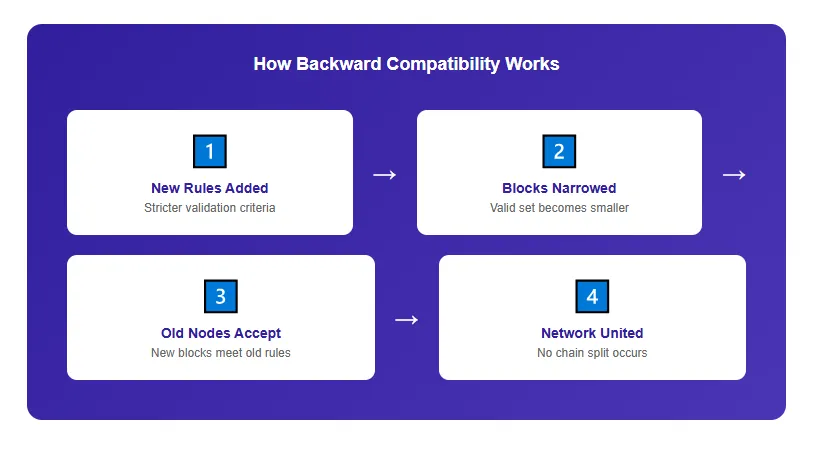
Soft Fork vs Hard Fork: Core Differences
Understanding the distinction between soft forks and hard forks is crucial for anyone involved in blockchain technology or cryptocurrency investments. These two upgrade mechanisms have fundamentally different implications for network participants, requiring different coordination strategies and carrying different risks. The Bitcoin community’s strong preference for soft forks reflects careful consideration of these differences and the value placed on network continuity. This preference has shaped Bitcoin’s evolution differently from other blockchain networks that have embraced hard forks more readily.
| Characteristic | Soft Fork | Hard Fork |
|---|---|---|
| Rule Change Type | More restrictive validation | Expanded or incompatible validation |
| Backward Compatibility | Yes, old nodes accept new blocks | No, old nodes reject new blocks |
| Chain Split Risk | Low with majority hashpower | High, often creates new coin |
| Upgrade Requirement | Optional for continued operation | Mandatory to follow new chain |
| Coordination Difficulty | Moderate, requires miner majority | High, requires full ecosystem |
| Historical Examples | SegWit, BIP66, BIP65 | Bitcoin Cash, Ethereum Classic |
Why Bitcoin Prefers Soft Forks for Network Upgrades
The Bitcoin community’s preference for soft forks over hard forks reflects several practical and philosophical considerations. From a practical standpoint, soft forks reduce coordination burden by not requiring all participants to upgrade simultaneously. This characteristic makes soft forks more achievable in a truly decentralized network where no central authority can mandate software updates. Philosophically, the preference for soft forks aligns with Bitcoin’s conservative approach to protocol changes, prioritizing stability and predictability over rapid feature iteration.
Hard forks carry significant risks including permanent chain splits, confusion among users, and potential dilution of network effects. The creation of Bitcoin Cash in 2017 demonstrated how contentious hard forks can divide communities and create competing versions of what was once a unified network. By contrast, successful soft forks like Segregated Witness upgraded the network while keeping all participants on the same chain. This outcome preservation of network unity while still enabling meaningful improvements explains why soft forks have become the preferred upgrade mechanism for Bitcoin. Organizations implementing cold storage solutions for Bitcoin security benefit from this stability when planning long term custody strategies.
Consensus Rules and Soft Fork Implementation
Bitcoin’s consensus rules define the criteria that determine whether a transaction or block is valid. These rules cover aspects including transaction format requirements, script execution parameters, block size limits, difficulty adjustment calculations, and reward schedules. Soft forks modify these rules by adding new constraints or reinterpreting existing parameters in more restrictive ways. The implementation process involves careful coding, extensive testing, and community review before any changes are deployed to the main network. This rigorous process ensures that soft forks enhance rather than undermine the network’s security and reliability.
The activation of soft forks requires coordination among network participants to ensure smooth transitions. Various activation mechanisms have evolved over Bitcoin’s history, each with different trade offs regarding decentralization, speed, and safety. Early soft forks used simple flag day activations where the new rules became effective at a predetermined block height. Later mechanisms introduced miner signaling requirements to ensure majority hashpower support before activation. The evolution of these mechanisms reflects the community’s ongoing experimentation with governance processes that balance efficiency with decentralization principles.
Role of Bitcoin Miners in Soft Forks
Miners play a crucial role in soft fork activation because they produce the blocks that either conform to or violate new consensus rules. When a soft fork activates, miners running upgraded software begin producing blocks that comply with the new, stricter rules. If a majority of hashpower enforces these rules, blocks from non upgraded miners that violate the new constraints will be orphaned, creating economic incentives for remaining miners to upgrade. This dynamic explains why miner support, often measured through signaling mechanisms, is critical for successful soft fork activation.
The relationship between miners and soft forks has evolved as the Bitcoin ecosystem has matured. Early soft forks relied heavily on miner cooperation, with activation dependent on reaching specific signaling thresholds. However, the community has also explored user activated mechanisms that reduce reliance on miner cooperation. Understanding these dynamics is important for evaluating Bitcoin’s governance model and its ability to implement necessary upgrades even when different stakeholder groups have conflicting interests. The factors affecting Bitcoin transaction fees often relate directly to soft fork implementations that modify block space economics.
Miner Activated Soft Forks (MASF)
Miner Activated Soft Forks represent the traditional approach to soft fork deployment where activation depends on miners signaling their readiness through specially formatted blocks. Under mechanisms like BIP9, miners include version bits in block headers to indicate support for specific proposals. When a sufficient percentage of blocks within a defined period include the appropriate signal, the soft fork activates after a grace period. This approach ensures that the network has adequate hashpower support before new rules take effect, reducing the risk of chain splits or extended reorganizations.
The MASF approach has both advantages and limitations. On the positive side, it provides clear metrics for measuring community support and gives miners economic stake in the activation decision. However, critics argue that MASF gives miners disproportionate influence over protocol changes, potentially misaligning incentives between miners and other stakeholders. The delays experienced during SegWit activation, when some miners appeared to block the upgrade for strategic reasons, highlighted these concerns and motivated exploration of alternative activation mechanisms.
User Activated Soft Forks (UASF)
User Activated Soft Forks emerged as an alternative to miner activated approaches, shifting activation authority toward node operators and economic participants. In a UASF, nodes begin enforcing new rules at a predetermined date regardless of miner signaling, creating pressure on miners to comply or risk having their blocks rejected by the economic majority. The BIP148 UASF proposal during the SegWit activation debate demonstrated how user activation threats could influence miner behavior and accelerate adoption of stalled upgrades.
The UASF approach embodies the principle that users, not miners, ultimately determine Bitcoin’s rules through their choice of software. By running nodes that enforce new rules, users can effectively mandate changes that miners must follow to have their blocks accepted by the economic network. However, UASFs also carry risks including potential chain splits if significant portions of the network disagree. The tension between MASF and UASF approaches reflects broader debates about governance, decentralization, and the distribution of power within the Bitcoin ecosystem.
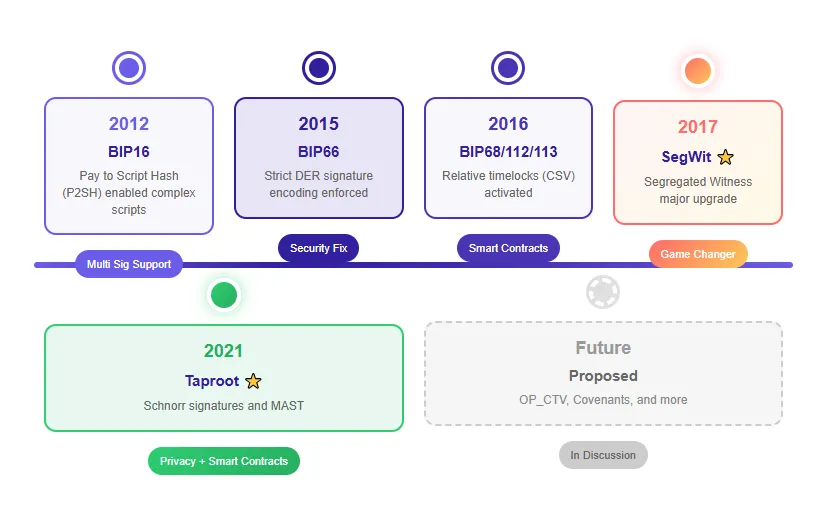
Signaling Mechanisms for Soft Fork Activation
Signaling mechanisms provide structured processes for measuring and coordinating support for proposed soft forks. These mechanisms have evolved significantly since Bitcoin’s early days, becoming more sophisticated to address various challenges encountered during previous activations. Modern signaling approaches balance the need for clear coordination signals with protection against gaming or strategic manipulation. Understanding these mechanisms is essential for following Bitcoin’s governance processes and anticipating how future upgrades might be deployed.
Thresholds and Voting in Soft Forks
Soft fork activation typically requires meeting specific threshold conditions before new rules take effect. BIP9, the most widely used signaling mechanism, requires 95% of blocks within a 2016 block difficulty period to signal support. This high threshold ensures overwhelming consensus before activation, reducing risks of chain splits or network instability. However, the 95% requirement also means that a small minority of hashpower can effectively veto upgrades, creating potential for deadlock as seen during the SegWit debates.
Recent proposals have explored alternative threshold levels and timeout mechanisms to balance consensus requirements with the need for timely upgrades. BIP8, developed partly in response to SegWit activation challenges, introduced options for lower thresholds and mandatory activation after timeout periods. These refinements reflect ongoing community learning about effective governance mechanisms for decentralized systems. The discussion around BIP39 and its transformative impact on Bitcoin demonstrates how improvement proposals shape the ecosystem beyond consensus rule changes.
Bitcoin Improvement Proposals (BIPs) and Soft Forks
Bitcoin Improvement Proposals serve as the formal documentation and review process for proposed protocol changes including soft forks. Each BIP follows a standardized format that includes motivation, technical specification, backward compatibility analysis, and reference implementation details. This structured approach ensures thorough vetting of proposals before they advance toward implementation. The BIP process has become a model for governance in decentralized systems, balancing open participation with quality control mechanisms.
The journey from BIP proposal to activated soft fork involves multiple stages including drafting, community review, implementation, testing, and coordination for deployment. Proposals may undergo significant revision based on feedback before reaching consensus status. Some BIPs document informational standards or best practices rather than consensus changes, but those proposing soft forks require particularly rigorous review given their network wide implications. Resources like understanding Bitcoin Improvement Proposal 44 help stakeholders navigate this complex landscape.
Security Enhancements Enabled by Soft Forks
Several critical security improvements have been implemented through Bitcoin soft forks, addressing vulnerabilities discovered after the original protocol design. These enhancements demonstrate the soft fork mechanism’s value for maintaining and improving network security without disrupting existing operations. Security-focused soft forks often receive broad support given their clear benefits and limited controversy compared to feature additions or scaling changes.
BIP66 implemented strict DER signature encoding, eliminating a source of transaction malleability and potential consensus failures. Before this soft fork, different implementations might interpret the same signature differently, creating risks for applications built on Bitcoin. By mandating a single canonical format, BIP66 improved interoperability and reduced attack surfaces. Similar security enhancements have addressed issues ranging from script execution vulnerabilities to timestamp manipulation possibilities, incrementally hardening the protocol against discovered weaknesses.
Scalability Improvements via Bitcoin Soft Forks
Scalability remains one of Bitcoin’s most discussed challenges, and soft forks have played important roles in addressing capacity limitations. The most significant scalability-focused soft fork, Segregated Witness, effectively increased block capacity by separating signature data from transaction data. This approach allowed more transactions per block without technically exceeding the original block size limit, demonstrating creative problem-solving within soft fork constraints. Understanding these dynamics helps organizations optimize their approaches to Bitcoin Replace by Fee for transaction management.
Beyond direct capacity increases, soft forks have enabled second-layer scaling solutions that process transactions off the main blockchain. The Lightning Network, Bitcoin’s primary layer two solution, depends on transaction formats and script capabilities introduced through soft forks. By fixing transaction malleability and enabling more complex scripts, soft forks created the foundation for these scaling innovations. This layered approach to scaling reflects the community’s preference for maintaining base layer security while enabling higher throughput through additional layers.
Transaction Malleability Fixes Through Soft Forks
Transaction malleability refers to the ability to modify a transaction’s identifier without invalidating it, creating problems for applications that reference transactions before confirmation. This vulnerability complicated payment channels, atomic swaps, and other advanced Bitcoin applications that depend on stable transaction references. Multiple soft forks have addressed different sources of malleability, progressively eliminating this class of vulnerabilities from the protocol.
Segregated Witness provided the most comprehensive malleability fix by moving signature data outside the transaction identifier calculation. Since signatures were the primary source of malleability, this structural change effectively solved the problem for SegWit transactions. The fix enabled reliable implementation of payment channels and other protocols that had previously been impractical due to malleability concerns. This achievement demonstrates how soft forks can enable entirely new categories of applications by addressing fundamental protocol limitations.
Segregated Witness (SegWit) as a Major Soft Fork
Segregated Witness represents the most significant and complex soft fork in Bitcoin’s history, addressing multiple challenges simultaneously while maintaining backward compatibility. Activated in August 2017 after extensive debate, SegWit separated signature data from transaction data, fixed transaction malleability, increased effective block capacity, and enabled future upgrade paths. The technical elegance of achieving these improvements through a soft fork demonstrated the mechanism’s flexibility for implementing substantial protocol changes.
The SegWit activation process was itself highly educational for the Bitcoin community, highlighting both the challenges of coordinating decentralized upgrades and the resilience of the system’s governance mechanisms. Initial activation attempts stalled due to insufficient miner signaling, leading to the emergence of UASF proposals that ultimately accelerated adoption. The experience informed subsequent discussions about activation mechanisms and demonstrated how different stakeholder groups can influence protocol evolution. Today, SegWit adoption continues growing as wallets and services upgrade to support the improved transaction format, including those implementing Bech32 address formats.
BIP66 and Strict DER Signatures
BIP66 mandated strict DER encoding for signatures in Bitcoin transactions, addressing a vulnerability that could cause consensus failures across different node implementations. Before this soft fork, OpenSSL’s flexible signature parsing meant that valid signatures on one system might be invalid on another, creating potential chain split scenarios. By requiring a single canonical format, BIP66 eliminated this divergence risk and improved the protocol’s determinism.
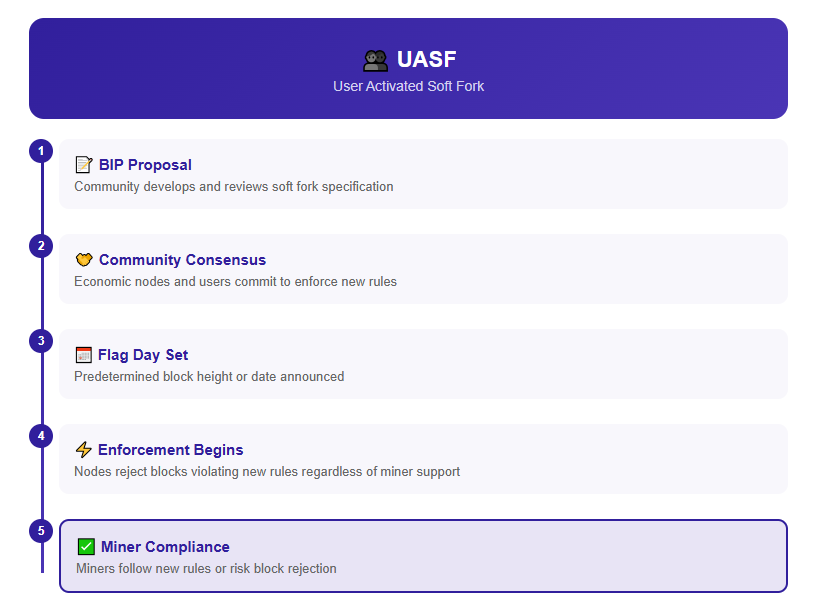
BIP141 and Its Role in Bitcoin Upgrades
BIP141 defines the consensus rules for Segregated Witness, specifying how witness data is structured, validated, and committed to blocks. The proposal introduces a new transaction serialization format, witness commitment structure, and updated weight calculation system. BIP141 works alongside BIP143, which defines the new signature hashing algorithm for SegWit transactions, and BIP144, which specifies peer to peer protocol extensions for relaying witness data. Together, these proposals form the comprehensive specification for Bitcoin’s most significant soft fork upgrade.
Impact of Soft Forks on Bitcoin Nodes
Soft forks affect different types of Bitcoin nodes in varying ways depending on their configuration and update status. Full nodes running updated software enforce new consensus rules, rejecting blocks and transactions that violate them. Non upgraded full nodes continue operating but may accept blocks that upgraded nodes reject, potentially following a different chain temporarily if miners produce non compliant blocks. This asymmetry creates incentives for node operators to upgrade while maintaining basic compatibility during transition periods.
Light clients and SPV wallets face particular considerations during soft forks since they rely on full nodes for transaction validation. These clients should connect to upgraded nodes to receive accurate information about transaction confirmations under new rules. The soft fork mechanism’s backward compatibility helps protect light client users during transitions, but upgrading remains advisable for accessing new features and maintaining security. Node operators and wallet vendors must carefully plan upgrade timelines to support their users through soft fork activations.
Risks and Limitations of Soft Forks
While soft forks offer significant advantages over hard forks, they are not without risks and limitations. Understanding these constraints helps stakeholders make informed decisions about protocol upgrades and their implications. Some proposed changes simply cannot be implemented as soft forks due to their nature, requiring either hard fork deployment or acceptance that certain improvements remain infeasible. Recognizing these boundaries is important for realistic planning of Bitcoin’s future evolution.
| Risk or Limitation | Description | Mitigation Approach |
|---|---|---|
| Temporary Chain Splits | Non-upgraded miners may produce invalid blocks | High signaling thresholds before activation |
| Reduced Security for Non Upgraded | Old nodes may accept invalid transactions | Community outreach encouraging upgrades |
| Technical Complexity | Maintaining backward compatibility adds constraints | Extensive testing and peer review |
| Limited Change Scope | Cannot expand rules, only restrict them | Creative use of script versioning |
| Activation Coordination | Achieving consensus in a decentralized network | Improved signaling mechanisms |
Community Governance and Decision Making
Bitcoin’s governance model differs fundamentally from traditional software projects and centralized organizations. No single entity controls protocol changes; instead, upgrades emerge through rough consensus among developers, miners, node operators, and economic participants. Soft fork proposals must navigate this distributed decision-making process, building support across multiple stakeholder groups before activation becomes feasible. This governance structure, while sometimes slow and contentious, provides resilience against capture or manipulation by any single party.
The soft fork activation process serves as a practical mechanism for measuring and expressing this distributed consensus. Signaling mechanisms provide quantitative data on miner support, while community discussions, code review participation, and economic commitments from businesses indicate broader ecosystem backing. Successful soft forks typically achieve overwhelming support before activation, reflecting the community’s preference for cautious, well coordinated changes. This governance model has interesting parallels to how DAOs in DeFi space approach collective decision making, though with different technical implementations.
Economic Impact of Bitcoin Soft Forks
Soft forks can have significant economic implications for Bitcoin’s network and its participants. Successful upgrades that improve scalability, security, or functionality tend to enhance Bitcoin’s utility and potentially its value proposition. Conversely, failed or contentious soft fork attempts can create uncertainty and market volatility. Understanding these dynamics is important for investors, businesses, and developers building on Bitcoin who need to anticipate how protocol changes might affect their operations and investments.
The market often reacts to soft fork developments based on perceived implications for Bitcoin’s long term viability and adoption. SegWit activation, for example, was associated with price appreciation as it demonstrated the network’s ability to implement meaningful upgrades and addressed longstanding scaling concerns. Transaction fee dynamics also respond to soft fork implementations that affect block space economics. Businesses evaluating Bitcoin integration should consider how upcoming soft forks might influence transaction costs, confirmation times, and available functionality.
Future Trends in Bitcoin Soft Fork Evolution
Several soft fork proposals are under active discussion that could significantly enhance Bitcoin’s capabilities in coming years. Schnorr signatures and Taproot, activated in November 2021, represent the most recent major soft fork, improving privacy, efficiency, and smart contract flexibility. Future proposals may address additional scalability improvements, covenant functionality for advanced smart contracts, and enhanced privacy features. The pace of soft fork adoption tends to be deliberate given the community’s conservative approach to protocol changes.
The evolution of soft fork activation mechanisms continues as the community learns from past experiences. Recent discussions have explored speedy trial activations with shorter timelines, different threshold levels, and improved coordination processes. These refinements aim to make beneficial upgrades easier to deploy while maintaining safety against premature or contentious changes. Observers of Bitcoin’s governance can expect continued experimentation with activation approaches as the ecosystem matures and new challenges emerge.
Ready to Build Your Bitcoin Blockchain Solution?
Partner with experts who understand the technical nuances of Bitcoin protocol upgrades and blockchain implementation.
Conclusion: The Role of Soft Forks in Bitcoin’s Evolution
Bitcoin soft forks represent a remarkable achievement in decentralized system governance, enabling meaningful protocol upgrades while preserving network unity and backward compatibility. Through mechanisms like miner signaling, user activation, and careful consensus building, the Bitcoin community has successfully implemented security enhancements, scalability improvements, and new functionality without fragmenting the ecosystem. The soft fork approach reflects Bitcoin’s conservative philosophy that prioritizes stability and predictability while still allowing necessary evolution.
Understanding soft forks is essential for anyone seriously involved with Bitcoin, whether as an investor, developer, or business operator. The technical mechanisms, governance processes, and economic implications of these upgrades directly affect how the network functions and evolves. As Bitcoin continues maturing, soft forks will remain the primary mechanism for implementing protocol improvements, shaping the network’s capabilities and characteristics for years to come. The lessons learned from Bitcoin’s soft fork history also inform broader discussions about blockchain governance and the challenges of upgrading decentralized systems.
Frequently Asked Questions
Technically, reversing an activated soft fork is extremely difficult and would require significant community consensus. Once miners and nodes adopt the new rules, rolling back would need another coordinated upgrade. The blockchain continues building on blocks following new rules, making reversal impractical. Most soft forks become permanent features of the Bitcoin protocol after successful activation and widespread adoption across the network.
The activation timeline varies depending on the signaling mechanism used. Most soft forks use a defined signaling period, typically lasting around two weeks per difficulty adjustment period. The entire process from proposal to activation can span several months to over a year. BIP9 based activations require 95% miner signaling within a specified timeframe before the soft fork becomes active on the network.
No, Bitcoin soft forks do not affect your existing wallet balance or holdings. Your coins remain safe and accessible regardless of soft fork implementations. Soft forks are backward compatible, meaning older wallet software continues to recognize valid transactions. However, updating your wallet software is recommended to access new features and maintain optimal security standards provided by the soft fork upgrade.
When a soft fork fails to achieve required consensus, the proposed changes are not implemented on the main network. The Bitcoin blockchain continues operating under existing rules without disruption. Developers may revise the proposal, adjust activation parameters, or abandon the upgrade entirely. Failed soft fork attempts do not cause chain splits or permanent damage to the network’s functionality or security.
Individual users running full nodes can technically reject soft fork rules, but this creates practical challenges. Since soft forks are backward compatible, non upgraded nodes still accept blocks from upgraded miners. However, users cannot enforce old rules if the majority of hash power follows new rules. Running outdated software may result in reduced security and functionality over time.
Several soft forks have introduced privacy enhancements to Bitcoin transactions. Upgrades like SegWit enabled development of second layer solutions with improved privacy features. Future soft forks may implement Schnorr signatures and Taproot, which make complex transactions appear identical to simple ones. These improvements help protect user financial privacy while maintaining the network’s transparency and auditability requirements.
Yes, soft forks undergo extensive testing before mainnet deployment. Developers first implement changes on Bitcoin’s testnet, a separate network for experimentation. Code reviews, security audits, and community feedback are essential parts of the process. Only after thorough testing and achieving broad consensus do developers propose activation on the main Bitcoin network to ensure stability and security.
Exchanges play a crucial role during soft fork activations by updating their node software and communicating with users. Major exchanges typically announce their support for proposed soft forks and upgrade timelines. They ensure wallet systems remain compatible and may temporarily pause deposits or withdrawals during critical activation periods. Exchange support often influences overall community adoption and soft fork success.
Soft forks can enable new functionality that supports token creation on Bitcoin. Upgrades like SegWit and Taproot have facilitated protocols like Ordinals and BRC20 tokens. While Bitcoin’s base layer focuses on its native currency, soft forks can introduce scripting capabilities that allow developers to build token systems. These innovations expand Bitcoin’s utility beyond simple value transfer applications.
Soft forks themselves do not directly increase or decrease Bitcoin’s energy consumption. The proof of work consensus mechanism remains unchanged through soft fork upgrades. However, efficiency improvements from soft forks like SegWit allow more transactions per block, effectively reducing energy cost per transaction. Optimized scripting and signature schemes can also contribute to marginal efficiency gains across the network.
Reviewed & Edited By

Aman Vaths
Founder of Nadcab Labs
Aman Vaths is the Founder & CTO of Nadcab Labs, a global digital engineering company delivering enterprise-grade solutions across AI, Web3, Blockchain, Big Data, Cloud, Cybersecurity, and Modern Application Development. With deep technical leadership and product innovation experience, Aman has positioned Nadcab Labs as one of the most advanced engineering companies driving the next era of intelligent, secure, and scalable software systems. Under his leadership, Nadcab Labs has built 2,000+ global projects across sectors including fintech, banking, healthcare, real estate, logistics, gaming, manufacturing, and next-generation DePIN networks. Aman’s strength lies in architecting high-performance systems, end-to-end platform engineering, and designing enterprise solutions that operate at global scale.

